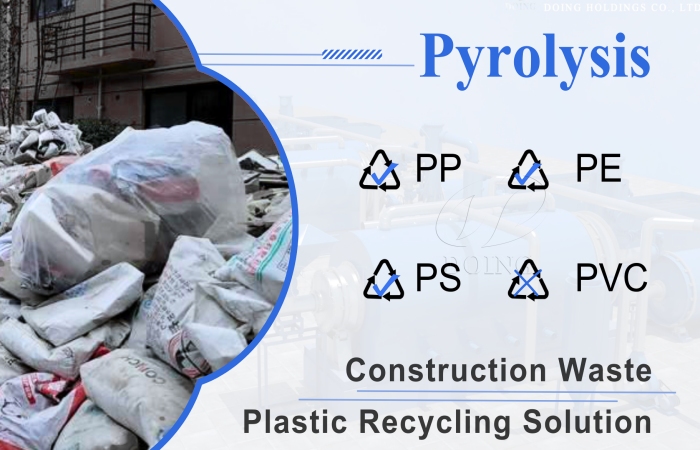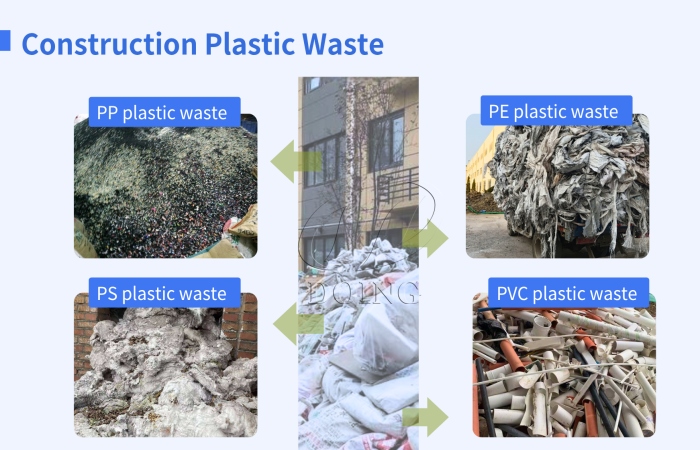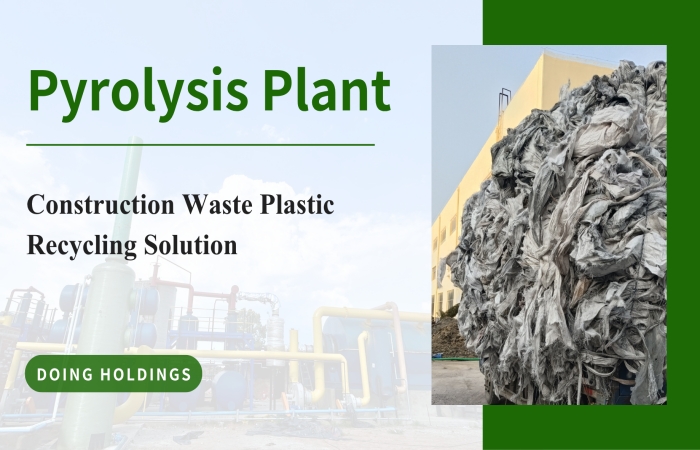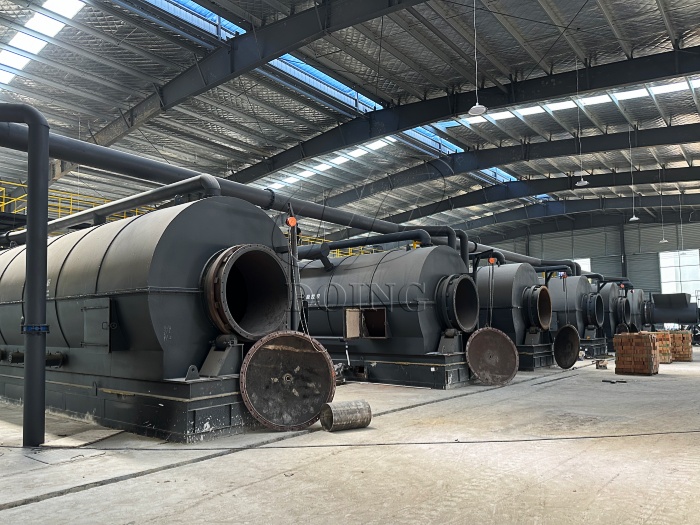What types of plastic waste are found in construction waste sorting centers? How is it treated and recycled?
Industry News / Chat on line / Give me a price / Date:2025-11-14
In today's rapidly urbanizing world, construction waste has become a hot topic in environmental governance. Plastic waste constitutes a significant portion of this waste, not only occupying land resources but also potentially releasing harmful substances. As professional processing sites, how do construction waste sorting centers properly recycle these sorted plastic waste?
Keep reading, you will find construction plastic waste treatment solution to achieve resource utilization of waste plastics and reduce processing costs here.
1. Common Types of Plastic Waste in Construction Waste Sorting Centers
Plastic waste in construction mainly comes from construction materials, packaging, and abandoned facilities. These plastics are not easily degraded, and traditional landfill or incineration methods can cause secondary pollution. Below are some common types of plastic waste found in sorting centers:
 Types of waste plastic in construction waste sorting center
Types of waste plastic in construction waste sorting center
1.1 PVC (Polyvinyl Chloride) Pipes and Sheets
PVC is the most common plastic used in construction, often used for drainage pipes, cable sheaths, and decorative panels. At demolition or renovation sites, these fragments are large, lightweight, and easily broken.
1.2 PE (Polyethylene) Packaging Films and Thin Films
PE plastics are widely used for packaging building materials, such as cement bags, plastic sheets, and waterproof membranes. After disposal, these films easily entangle machinery, making them difficult to handle.
1.3 PP (Polypropylene) Containers and Ropes
PP plastics are commonly found in construction toolboxes, ropes, and temporary containers, such as wire reels or protective netting. They are high-strength and corrosion-resistant, but expand in volume after disposal, taking up space. PP types account for approximately 10%-20% of construction waste and are suitable for high-temperature processing to extract fuel oil.
 Construction PP/PE/PS/ABS plastic waste materials for treatment
Construction PP/PE/PS/ABS plastic waste materials for treatment
1.4 PS (Polystyrene) Foam and Insulation Materials
EPS or XPS plastics are commonly used in building insulation layers, leaving a large amount of white debris after removal. This waste is lightweight and easily dispersed.
1.5 Other Mixed Plastics (such as ABS, PC)
These include electronic device housings (such as switch boxes) and composite plastic doors and windows. These contain many impurities and are of various colors, accounting for approximately 5%-10%.
Simply dumping or incinerating these construction plastic wastes not only waste resources but may also produce pollutants such as dioxins. Construction waste sorting centers need to employ scientific methods to achieve the goals of reduction, harmlessness, and resource recovery.
So, how can plastic waste processing and recycling be done efficiently? Henan Doing Company will list several solutions.
2. Construction Plastic Waste Treatment and Recycling Solution
Faced with the challenge of plastics in construction waste, traditional mechanical crushing or chemical cleaning methods are inefficient and energy-intensive. Professional plastic pyrolysis equipment has become the mainstream solution. As a manufacturer specializing in plastic pyrolysis equipment, our equipment uses anaerobic pyrolysis technology to transform construction plastic wastes into high-value products, achieving sustainable&proper recycling and providing an effective plastic treatment solution for construction waste sorting centers.
 Construction plastic waste pyrolysis solution
Construction plastic waste pyrolysis solution
2.1 Working Principle of Plastic Pyrolysis Equipment
The pyrolysis process takes place in a sealed reactor, heating construction plastic waste to 400-600℃, decomposing it into fuel oil, carbon black, and syngas in an anaerobic environment:
Fuel Oil Recovery: Approximately 45%-70% is converted into fuel oil, which can be used in industrial boilers or heating furnaces, offering high calorific value and economic value (450-700L of oil can be produced per ton of plastic). We Henan Doing Company also have some customers bought pyrolysis equipment for alternative fuel production to save factories operation costs, they are from different industries, such as steel mill factories, brick/cement/china/glass production plants, galvanized plant, heavy oil power plants, etc. If you are a construction waste processing company owner or a professional in the plastic recycling industry, you don’t need to worry about the sales channels of plastic pyrolysis oil.
Carbon black and gas: The remaining portion is processed into carbon black (for rubber fillers) or combustible gas (self-supplied energy for heating pyrolysis equipment reactor).
2.2 Advantages ofDOING Waste Plastic Pyrolysis Equipment
Waste plastic pyrolysis equipment supplied by DOING Company is optimized for construction waste plastics and boasts the following highlights, attracting numerous construction waste sorting center clients:
High adaptability: Compatible with mixed plastics such as PE, PP, and PS, requiring no strict sorting; processing capacity 1-50 tons/day/unit.
Environmentally friendly emission design: Equipped with dust removal and multi-stage exhaust gas purification systems, meeting national environmental standards. The entire plastic pyrolysis process uses recycled water, generating no additional wastewater pollution.
Energy saving: Our scrap plastic pyrolysis equipment is equipped with a combustible gas purification and recovery system, recovering the gas generated during the pyrolysis process of construction plastic waste.
Customized services: Providing comprehensive support from installation to operation and maintenance, including on-site commissioning and oil purification technology, helping you quickly go live.
 DOING waste plastic pyrolysis equipment installation site
DOING waste plastic pyrolysis equipment installation site
Through pyrolysis solutions, construction waste sorting centers can not only turn waste PP, PE, PAS or other mixed plastic materials into treasure, achieving environmentally friendly treatment of construction plastic waste while generating revenue, but also respond to carbon reduction and carbon neutrality goals, and even receive government subsidies.
If you are struggling with scrap plastic disposal, please contact us—a professional manufacturer of plastic pyrolysis equipment. We offer free consultation and technical solutions to help upgrade the profit chain of your sorting center.




